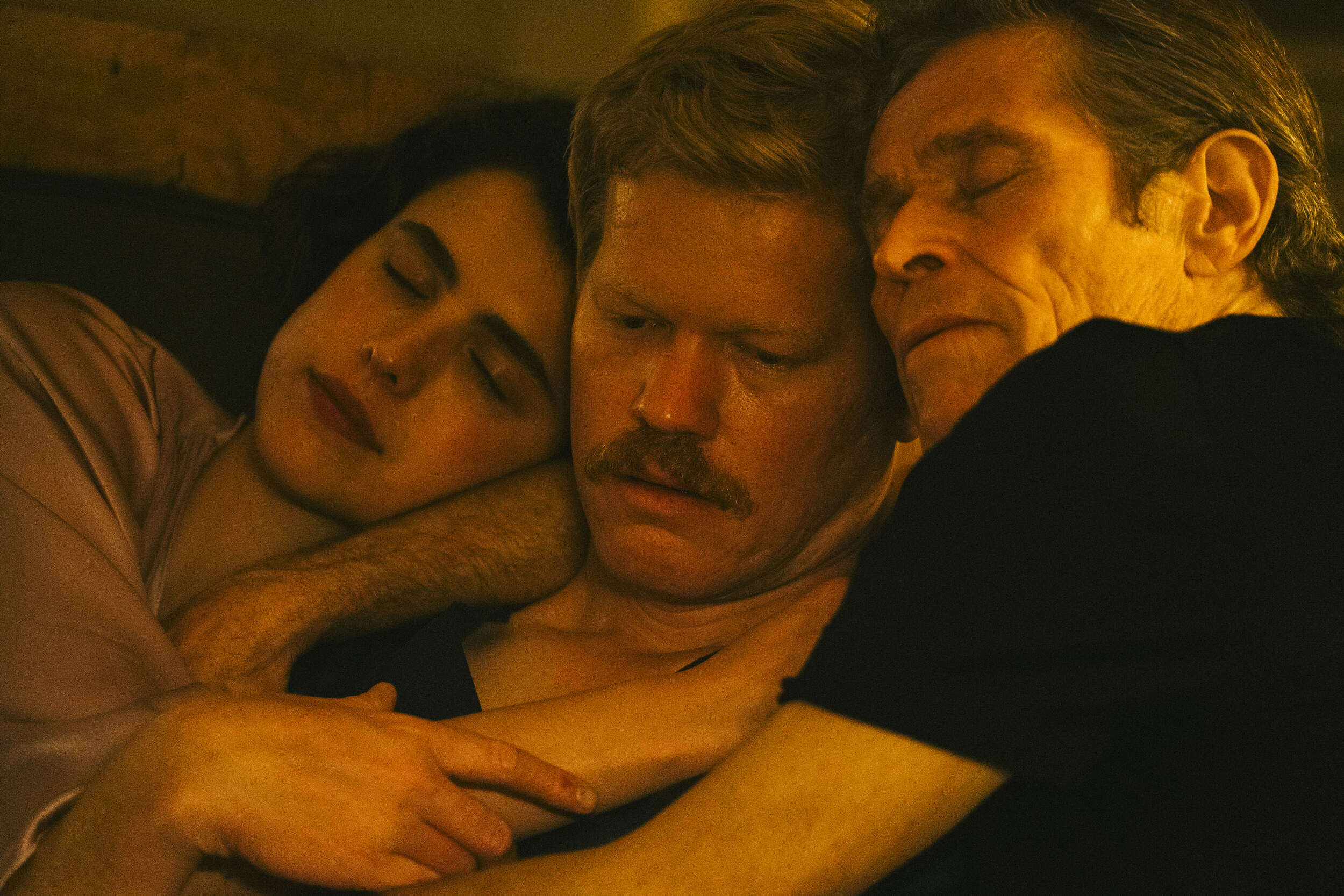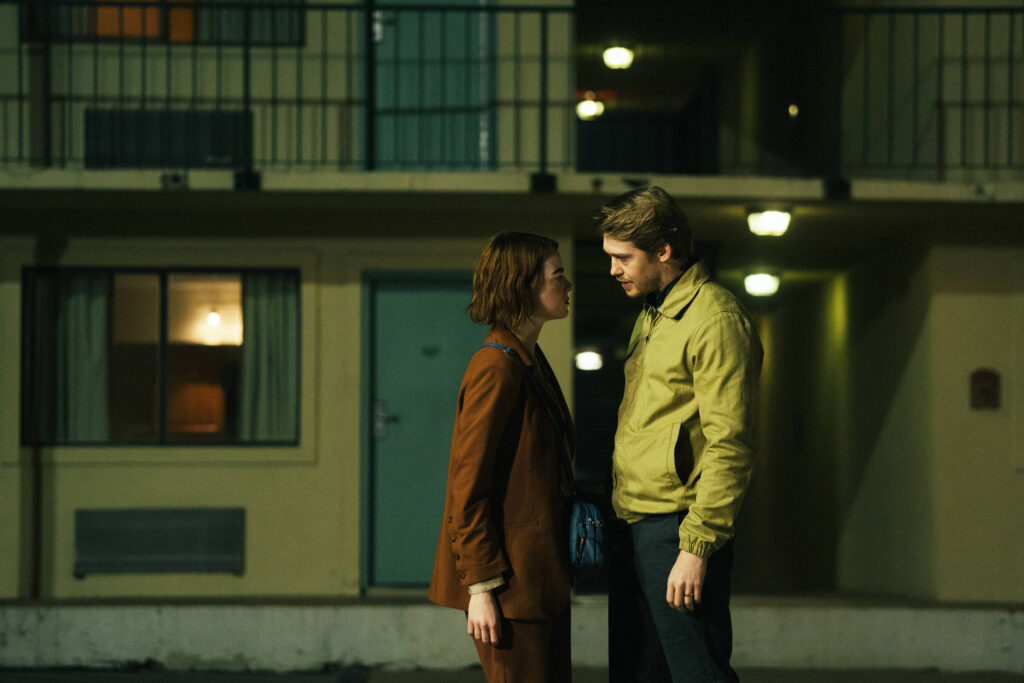
Kinds of Kindness | Lanthimos' inquiry into kindness, love and abuse
Year
Runtime
Director
Writer
Cinematographer
Genre
By
No act of kindness, no matter how small, is ever wasted.
Aesop in The Lion and the Mouse
In Kinds of Kindness things are not quite like that. One cannot expect to find in this film pure and sincere acts of kindness, carried out from pure altruism, in the hope of making the world a better place. Or rather: the underlying concept is always this, but kindness is not always synonymous with happiness or prosperity. Sometimes, when someone is not educated on what kindness really is, letting themselves go to it can instead be the first step in the fall.
Presented at the 77th Cannes Film Festival, Kinds of Kindness is written by Efthymis Filippou, Yorgos Lanthimos and directed by Lanthimos himself. The film comes out just a year after Poor Things, it was in fact shot – as the director explained during the press conference in Cannes for the film – during the post-production of his latest work. However, it distinguishes itself from Poor Things, distancing itself from it in terms of themes, structure and style, creating a Lanthimos outside its own mold, despite a small return to the origins.
R.M.F.
Kinds of Kindness is a movie made up of three episodes, in which the same cast is always used. The viewer can therefore find Emma Stone, Willem Defoe, Jesse Plemons and Hong Chau playing various characters, each very different from the other.
In the first episode, “The Death of R.M.F.”, Plemons is a man who lives for his boss, Defoe, who lets him decide everything about his life, from nutrition to choosing whether to have children or not. However, when he refuses to kill a complete stranger, the relationship between the two breaks down.
In the second episode, “R.M.F. is flying”, Plemons is a policeman whose wife, Stone, disappears during a scientific expedition. However, when she finally returns home, her husband suspects that the woman in front of him is not really his wife.
In the third episode, “R.M.F. eat a sandwich”, Plemons and Stone are two members of a cult engaged in the search for a phantom chosen one who should have the ability to resurrect the dead. R.M.F., which appears in the titles of each episode, is nothing other than the acronym for the name of one of the characters. Very secondary, his identity is almost irrelevant, yet apparently he is important enough for Lanthimos to dedicate the primary essence of every story to him. It is the spectator’s task to interpret why.
To our mind R.M.F. is the only character that appears in all of the three stories. And you can do whatever you want with that!
Yorgos Lanthimos at the press conference at the Cannes Film Festival

Kindness as love, love as power
Saint Paul said that there was no greater love than charity, that is, helping others. But when do these feelings turn into violent possession, into control?
In Kinds of Kindness, every situation leads back to a sick love, abuse and submission of power. What emerges is that the recipient of this conflict is always the one who tries to be as kind as possible. Of course, even the abuser is, like Defoe in the first episode, or always Defoe, together with Chau who plays his wife, as leaders of the sect that seeks resurrection and an end to violence (so, in theory, a very positive goal).
Those who try to please others at all costs, driven by the need and desire to be loved, to be seen and to do something kind for others, are called ‘people-pleasers’. Yet they are the ones who, in this dynamic, emerge more embittered and, ultimately, more alone. Who suffer the dark side of kindness.
In Kinds of Kindness, Lanthimos shows how nobody should lose themselves in trying to please others, even if you do so with all good intentions. The director does this by returning a little to the films that proclaimed him to be the great director that he is, like The Lobster or The Killing of a Sacred Deer, with its aseptic atmospheres, in which the bodies are only a means to achieve an objective, they are not bond of discovery and self-determination like Emma Stone in Poor Things.
I find physicality and body language very important. […] Our rehearsal process always starts with physicality and trying and doing things, instead of intellectualizing things. […] I certainly don’t mistreat it, at least practically, I think it’s just observing life and a lot of it is dark. Also the ridiculousness and its awkwardness. What else is cinema if not the people and their bodies.
Yorgos Lanthimos at the press conference at the Cannes Film Festival
In reality, this Lanthimos also distances himself from his past self, entering a slightly more pop world, with the fun and exaggerated use of music, which from the beginning of the credits sets the mood of a film that it intends, despite its particularities, to also be in step with the times.
Escape from abuse
In Kinds of Kindness, we ask ourselves if we can ever truly escape the abuse, the power dynamics dictated by a deviant love, or if instead the cycle will repeat itself endlessly. Perhaps it is no coincidence that at the end of each episode there is something that refers to its beginning, or that, among all the things the protagonists eat during their stories, the egg (and the omelette in particular) is always put more prominently.
Why in my films there’s something off? Something is off with the world. I thinks that my work and others people’s works reflect the world, and you just try to find a way to do that at the best that you can. […] The world is off and strange and crazy; sad, a lot of the time. It’s also ridiculous and funny, that need to be part of what we make.
Yorgos Lanthimos at the press conference at the Cannes Film Festival
Tag
Buy a ☕ for Hypercritic









